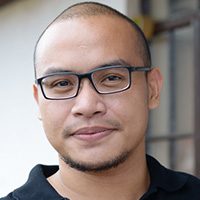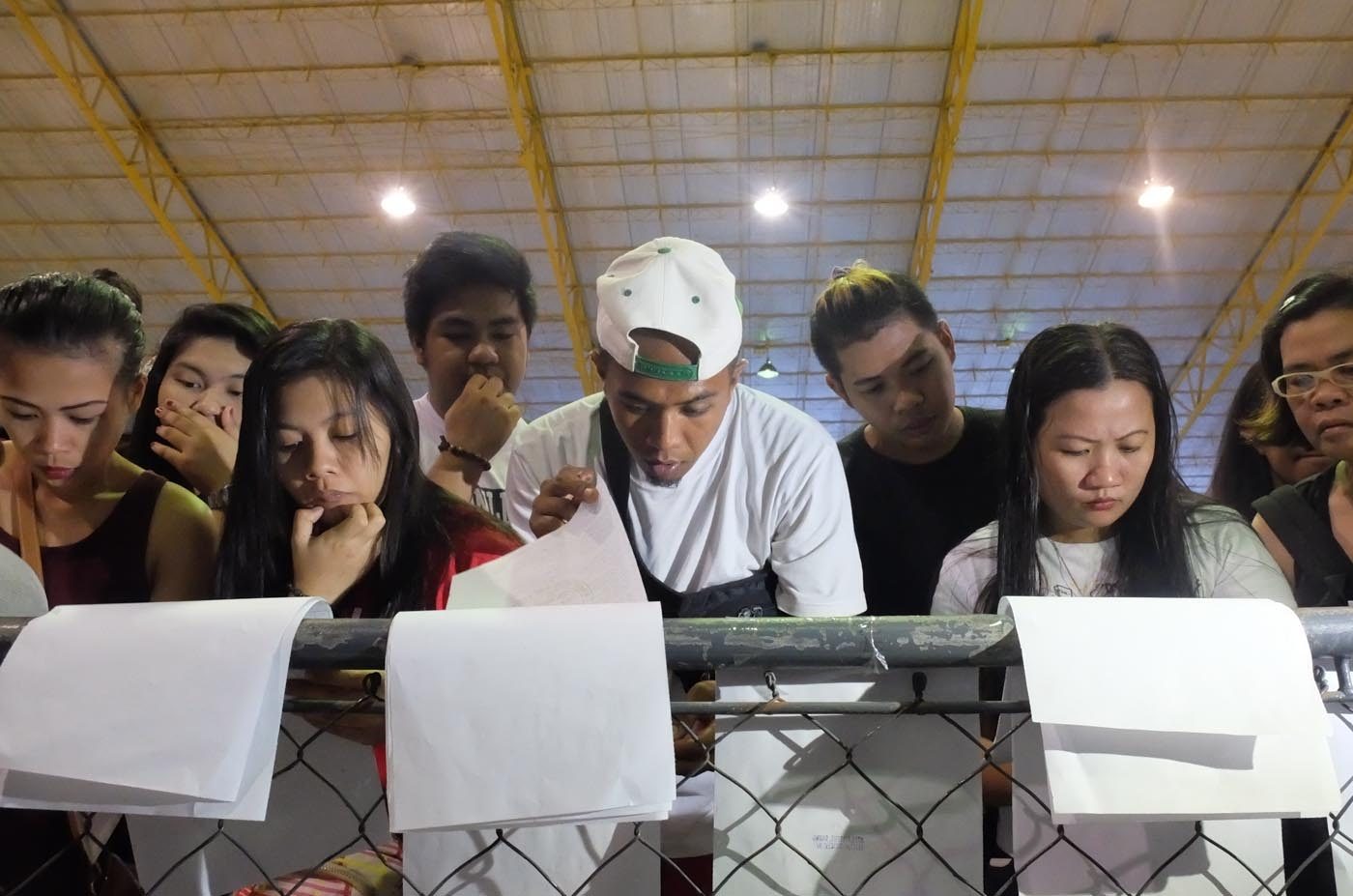SUMMARY
This is AI generated summarization, which may have errors. For context, always refer to the full article.

Surigao del Norte Representative Robert Ace Barbers filed House Bill 5359 on Monday, March 28. It seeks to postpone the October 2017 barangay and Sangguniang Kabataan (SK) elections to the 4th Monday of May 2020.
While the postponement of barangay and SK elections has been done many times before, Barbers’ bill is unprecedented as it authorizes the current president to fill up all barangay posts with “officers-in-charge” (OICs).
Unlike the previous cases, where the incumbent gets to remain in office by “hold over,” the Barbers bill terminates all incumbent officials upon effectivity of the proposed legislation. It allows President Rodrigo Duterte to appoint OICs as replacements.
The blunt explanatory note of the bill reveals the motive behind it:
“President Duterte said that he wants the October 2017 barangay elections postponed because he does not want those financed by drug lords to win. He further said that if the barangay elections would proceed as planned, the winners might be financed by drug money.”
Representative Barbers, in other words, proposes to cancel the election because the President wants to prevent bad people from winning. Even if we disregard the debatable wisdom and the speculative premise of the proposed legislation, its defect goes deeper.
The language of House Bill 5359 is so careful that it uses “officers-in-charge,” as opposed to an appointed punong barangay (village head), hoping to deflect legal complications. But the bill’s very obvious intention is to design a scheme where the President picks and appoints punong barangays, instead of having them chosen by the people in a popular election.
This contravenes the Constitution on so many fronts.
First, under the 1987 Constitution, local government positions, including those in the barangays, are by design to be filled by election. While there is no such express declaration in the Constitution, such intention is indisputably apparent in many of its provisions, such as these:
Article IX (C) Section 2.2:
“Exercise exclusive original jurisdiction…and appellate jurisdiction over all contests…involving elective barangay officials decided by trial courts of limited jurisdiction.”
Article X, Section 8:
“The term of office of elective local officials, except barangay officials, which shall be determined by law, shall be three years and no such official shall serve for more than three consecutive terms. Voluntary renunciation of the office for any length of time shall not be considered as an interruption in the continuity of his service for the full term for which he was elected.”

Second, this mode of filling in barangay positions cannot be changed from elective to appointive by mere legislative enactment. It needs a constitutional amendment.
Adopting this appointment scheme would also render inutile related constitutional provisions, like the trial courts’ jurisdictions over questions relating to the elections, returns, and qualifications of all elective barangay officials and the Commission on Elections’ related appellate jurisdiction.
How can we also reconcile the term of appointed barangay officials with the constitutionally-imposed 3-term limit rule?
Third, it is clear in Article X (Section 8) of the Constitution that the only discretion of Congress as regards the “term of office” of barangay officials is the determination of its length. This means that in the case of elective barangay officials, Congress can either lengthen or shorten the default 3-year term, but certainly this power does not include the greater discretion to scrap these term limits altogether.
Fourth, the proposed legislation is a threat to the 1987 Constitution’s policy of decentralization. Article II (Section 25) obliges the state to “ensure the autonomy of local governments.” In relation to this, Article X (Section 4) states that “[t]he President of the Philippines shall exercise general supervision over local governments.”
This provision is two-pronged. It is not only an express grant of such supervisory authority to the President, but it also sets the limit of the extent that the central government, acting through the President, can meddle with local governments. In Bito-onon vs. Judge Yap-Fernandez (GR Number 139813, January 31, 2001), the Supreme Court defined the President’s power of supervision only to mean “the power of a superior officer to see to it that lower officers perform their functions in accordance with law.”
The same ruling clarified that: “[T]he Chief Executive wielded no more authority than that of checking whether a local government or the officers thereof perform their duties as provided by statutory enactments. He cannot interfere with local governments provided that the same or its officers act within the scope of their authority.”
House Bill 5359 is a clear attempt to significantly expand the President’s power beyond general supervision at the expense of the autonomy of barangays. The President’s proposed power to appoint or designate barangay OICs necessarily implies the power to fire the same official at will. Putting all barangay officials at the full mercy of the President is clearly beyond even the most liberal interpretation of “general supervision”.
If we go further, following Representative Barbers’ and President Duterte’s logic, what is there to stop them from expanding the scheme to higher local government posts and have all of them simply appointed? None.
This is a dangerous precedent as it would not only effectively lump the supposedly decentralized local governments to the executive department, but will put too much power in one person, the dangers of which this country is too familiar with.
The 5th and the most important objection to House Bill 5359 is that it is not only a threat to, but a direct assault on, democracy. It is undisputed that the power to choose barangay officials exclusively belongs to the people.
Article II (Section 1) of the Constitution reiterates that “[s]overeignty resides in the people and all government authority emanates from them.” While, in theory, the people, in approving the Constitution, delegate the exercise of most of its sovereignty in favor of the government, the power to elect public officials is a portion of that sovereignty it reserved to itself and withheld from the government.
House Bill 5359 is an attempt of Congress to wrestle this remaining sovereignty from the people. Unfortunately, this power is not for Congress to give to the President, for the simple reason that it cannot give what it does not have in the first place. – Rappler.com
Emil Marañon III is an election lawyer who served as chief of staff of former Comelec Chairman Sixto Brillantes Jr. He is candidate for LLM in Human Rights, Conflict and Justice at SOAS, University of London, as a Chevening scholar.
Add a comment
How does this make you feel?
There are no comments yet. Add your comment to start the conversation.